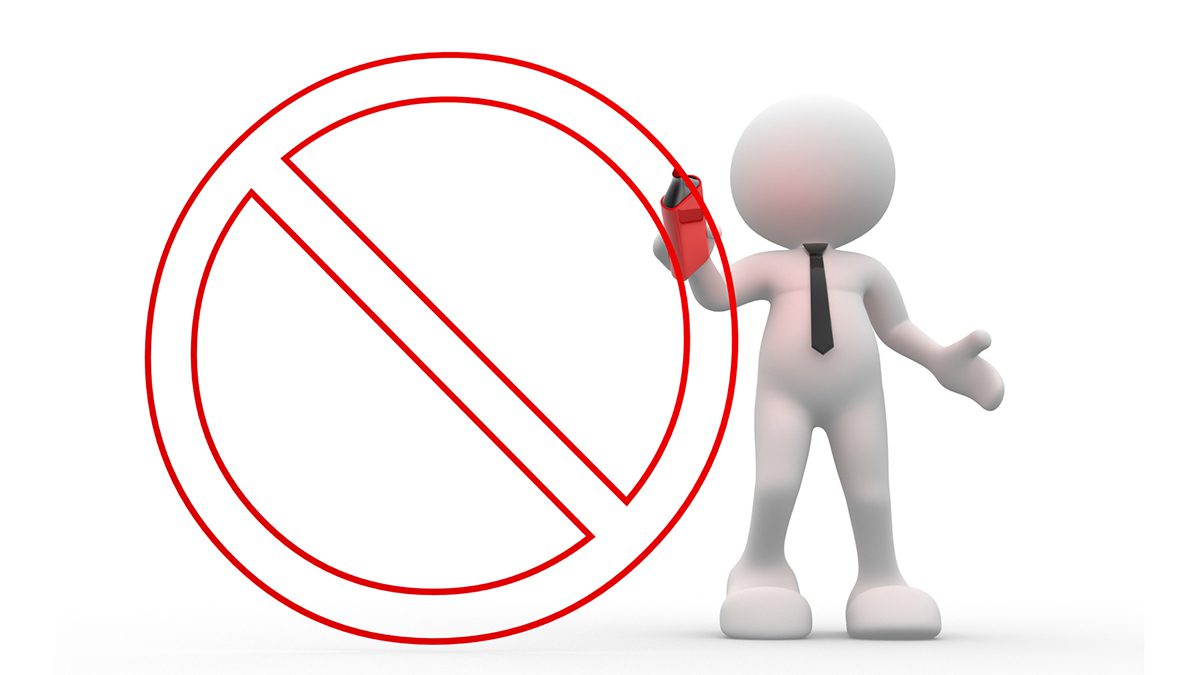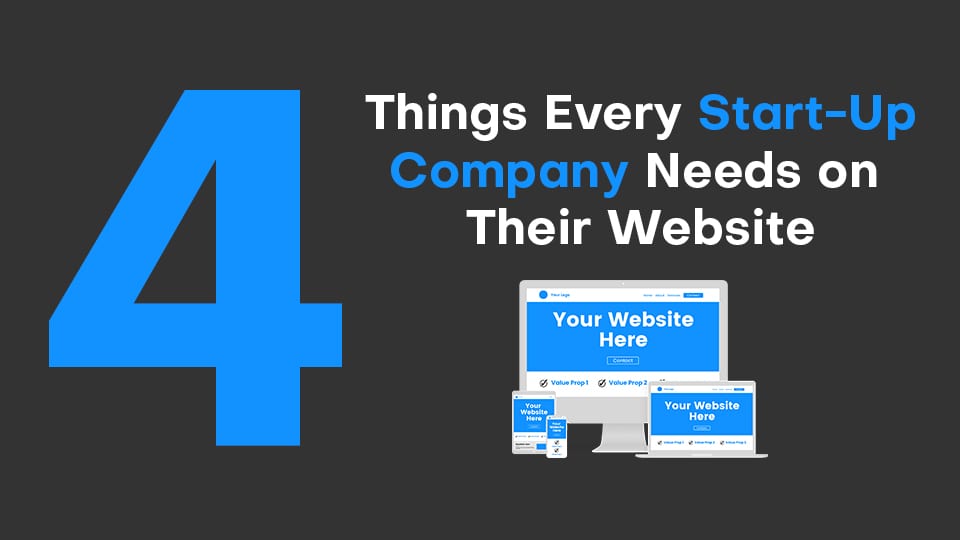Can you get banned from Google? Absolutely. Whether it’s an individual Google account or a website’s presence in search results, Google has strict policies and guidelines to maintain the integrity of its services. Violations like black hat SEO techniques, spamming, malware distribution, and other forms of misconduct can lead to suspensions or permanent bans.
Getting banned from Google can be a major inconvenience, given how heavily businesses rely on Google’s services to reach customers online. We’ll share some common reasons businesses may find themselves in this situation and how to avoid it from happening to you.
Understanding Google Bans
When Google suspects misconduct, it doesn’t hesitate to take action. This can result in the suspension of your Google accounts, restrictions on accessing different services, or even complete removal from Google’s search index.
Google is strict about its policies in order to maintain the integrity and security of its platforms. Whether you are managing multiple accounts for business purposes or relying on one account for all your needs, a ban can severely disrupt your operations.
A Google ban can occur in different contexts for different Google accounts: individual user accounts or website listings in search results. For individual users, the breach of Google’s Terms of Service can lead to a banned Google account. This could be due to unauthorized access, fraudulent activities, or any action compromising the security of Google services. In this case, users lose access to all the apps associated with Google, such as Google Photos, Google Drive, YouTube, Gmail, etc.
Websites, on the other hand, can face bans from search engines for policy breaches like SEO manipulations or spamming, which try to trick people into viewing irrelevant content. Websites that rely heavily on these unethical practices can pretty much guarantee Google will ban their site from search engine results at some point or another.
Reasons Why Websites Get Banned

There are several actions that can result in a banned Google account, each tied to violations of Google’s strict guidelines and policies. One major cause is the use of black hat SEO techniques, which attempt to manipulate search engine rankings through unethical practices such as keyword stuffing, cloaking, and creating doorway pages.
Duplicate content and plagiarism can also lead to bans, as Google prioritizes original and high-quality content. Security issues, including malware distribution and user-generated spam, also pose significant risks. Websites that engage in unnatural link building practices or present thin, low-value content are also at risk.
Violations of Google’s Webmaster Guidelines
One of the primary reasons websites get banned from Google is the violation of Google’s Webmaster Guidelines. These guidelines are a set of best practices to help website owners create content that is both user-friendly and search-engine-friendly. Ignoring these guidelines can lead to severe penalties, including a complete ban from Google search results.
Google emphasizes the importance of creating high-quality content that provides value to users. Using deceptive techniques to manipulate search engine rankings is considered a violation of Google’s guidelines. If Google determines that a site is not adhering to these guidelines, it can result in the site being removed from its search index, which can drastically affect the site’s visibility and traffic.
Black Hat SEO Techniques
Black hat SEO techniques are a significant reason why websites get banned from Google. These tactics try to manipulate search engine rankings unfairly and include practices like keyword stuffing, cloaking, and sneaky redirects. Keyword stuffing involves loading a webpage with irrelevant or repetitive keywords to manipulate a site’s ranking in search results. Cloaking is another deceptive practice where the content presented to the search engine is different from what is shown to users. Redirects involve sending users to a different URL than the one they originally clicked on.
Duplicate Content and Plagiarism
Google values original content and penalizes websites that contain duplicate content or engage in plagiarism. Duplicate content refers to blocks of content that are either identical or very similar to content already out there. While not all duplicate content is malicious in intent, such as when quoting sources, excessive duplication can lead to a ban.
Plagiarism is a more severe offense where content is copied directly from other sources without proper attribution. Google’s algorithms are sophisticated enough to detect this type of content, and websites caught plagiarizing can face penalties ranging from lower rankings to a complete ban. Make sure any content you share on your website is unique and original.
If you aren’t the DIY type, the best way to get original, helpful content that provides value to your audience is to hire an expert who can provide SEO content writing services for you.
Malware and Security Issues
Websites that pose security risks to users can also get banned from Google. This includes sites that distribute malware, which can harm users’ devices or steal personal information. Google has a strict policy against any form of malicious activity and uses advanced tools to detect these threats.
If your website is found to be distributing malware, it can be blacklisted by Google. This not only results in a ban from search results but also displays a warning to users trying to access the site, significantly damaging the site’s reputation and traffic. Be sure to regularly monitor your site for security issues and use secure practices in order to avoid a ban.
User-Generated Spam
User-generated spam is another factor that can lead to a Google ban. This includes spammy comments, forum posts, or user profiles that violate Google’s guidelines. If your website allows user-generated content, it’s important to have measures in place to prevent and manage spam.
Failing to control user-generated spam can make your site look untrustworthy and cluttered, leading Google to take action against it. Implementing moderation practices, using CAPTCHA systems, and regularly reviewing user content can help maintain the quality and integrity of your website, preventing potential penalties from Google.
Unnatural Link Building Practices
Link building is an important part of SEO, but engaging in unnatural link building practices can lead to a Google ban. Unnatural links are those that are intended to manipulate a site’s ranking and include buying links, excessive link exchanges, and using automated programs to create links.
Google’s algorithms can detect this, and websites found engaging in unnatural link building can face penalties. Building a natural, high-quality backlink profile is important for maintaining a good standing with Google. This involves earning links by creating valuable content that naturally attracts links from other reputable sites.
If you struggle with link building, consider hiring an SEO agency that specializes in SEO link building and can help you achieve high-quality, relevant backlinks.
Thin Content and Keyword Stuffing
Thin content is another reason why websites can get banned from Google. This refers to content that provides little or no value to users. Examples include pages with very little text, automatically generated content, or pages filled with irrelevant information. Thin content can lead to a poor user experience, which is why Google penalizes it.
Keyword stuffing, as mentioned earlier, involves overloading a webpage with keywords in an attempt to manipulate search rankings. Not only does this create boring and repetitive content, but also violates Google’s guidelines. Make sure any content you publish is valuable, informative, and written for users rather than search engines is key to avoiding these penalties.
How to Determine if Your Site is Banned

One of the first steps to figure out if your site has been banned is to perform a site search on Google using the “site.com” query. If your site does not appear in the search results, it could indicate a ban.
Another method is to check Google Search Console for any manual actions or warnings. Google often communicates penalties through Search Console, providing insights into the reasons for the ban. Regularly monitor your Search Console account to catch any issues early and address them promptly.
How to Recover from a Google Account Ban
If Google banned your account, you’re probably wondering what to do next. First, you need to identify the reason for the ban. Google usually provides information on why an account was banned, whether it’s due to policy breaches or suspected misconduct. Understanding the reason will help you address the issue effectively.
Once you know the reason, you can take steps to correct it. This may involve removing any policy-violating content, securing your account, or stopping any unauthorized activities.
After addressing the issues, you can appeal the ban. Google allows up to two appeals for banned accounts. Follow onscreen instructions provided by Google to submit your appeal. Make sure to provide all necessary information and documentation to support your case. If your appeal is successful, your account will be reinstated.
Can You Get Banned From Google?
In short, yes, it is possible to get banned from Google. Whether it’s an individual account or a website, Google has policies in place to ban users and sites that violate its policies. For business owners with websites, understanding the potential reasons for a Google account ban and taking proactive measures to comply with Google’s guidelines can help you avoid this potentially disastrous situation.
Violations such as black hat SEO techniques, duplicate content, malware, user-generated spam, unnatural link building, and thin content can all lead to a ban. Regularly monitoring your site’s performance and adhering to best practices can help you avoid these issues.







